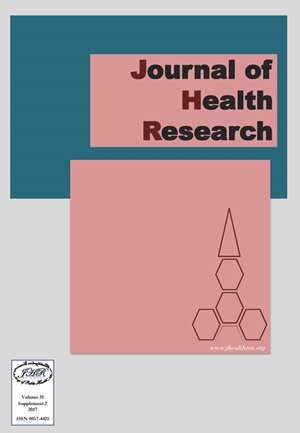Social Stigmatization Access to Services and Service Satisfaction among Transgender Persons at Thai Red Cross AIDS Research Center - Tangerine Project: a Qualitative Study
Keywords:
Transgender, Stigmatization, Services satisfaction, Transgender women (TW), Transgender men (TM), Life-grid, Thailand, Thai Red Cross AIDS Research Center (TRCAC)Abstract
Background: Transgender has become an umbrella term to mean all those who are cross sex. There has been much progress in women's rights. The gay rights movement has come much more recently, and in many environments. Transsexuals, crossdressers, intersexual, and visibly "gay" men and women often suffer gender discrimination because they don't meet society's expectations for people to conform their identity with their anatomy at birth. Thailand has the highest incidence of transgender persons world-wide. Transgender persons are sometimes receiving different standard of service than ordinary people. The access to healthcare services is a basic need and right for every persons in the community. The stigmatization against transgender persons is still a barrier to access health care service.
Method: A cross-sectional descriptive and analytic design using qualitative method. Interviewed subjects were transgender persons who used hormonal replacement therapy (HRT) at the Tangerine Center of The Thai Red Cross AIDS Research Center (TC-TRCAC). Questionnaires were given to participants to fill in socio-demographic information and services satisfaction. Face-to-face in-depth interviews were conducted using a structured life-grid table to fill information of life experiences.
Results: Eighteen transgender clients, 11 transgender men (TM), and 7 transgender women (TW). Transgender persons faced stigmatization from their families, friends, the workplace, government departments and healthcare centers. The stigmatization from family was because of their uncertain future such as hardship in finding jobs. Stigmatization at their living community lead the transgender persons to avoid communication or interact with the community. Stigmatization in the workplace, caused by both supervisors and sub-coordinates, manifested by not trusting them to handle the job. Main reason of preventing transgender to access healthcare services was stigmatization inside the healthcare center. Searching for a new services provider was the only result of solving problem. Services utilization and satisfaction of using services at Tangerine Center Thai Red Cross AIDS Research Center (TC-TRCAC) was investigated under 4 factors: accessibility, acceptability, availability and affordability. The highest satisfaction was for cost of services and the lowest satisfaction was period for waiting time.
Conclusion: Further research would be recommended to expand the sample size and study area to make this results generalizable. The population of this study should be separate into TM and TW due to the different type of hormones used.







